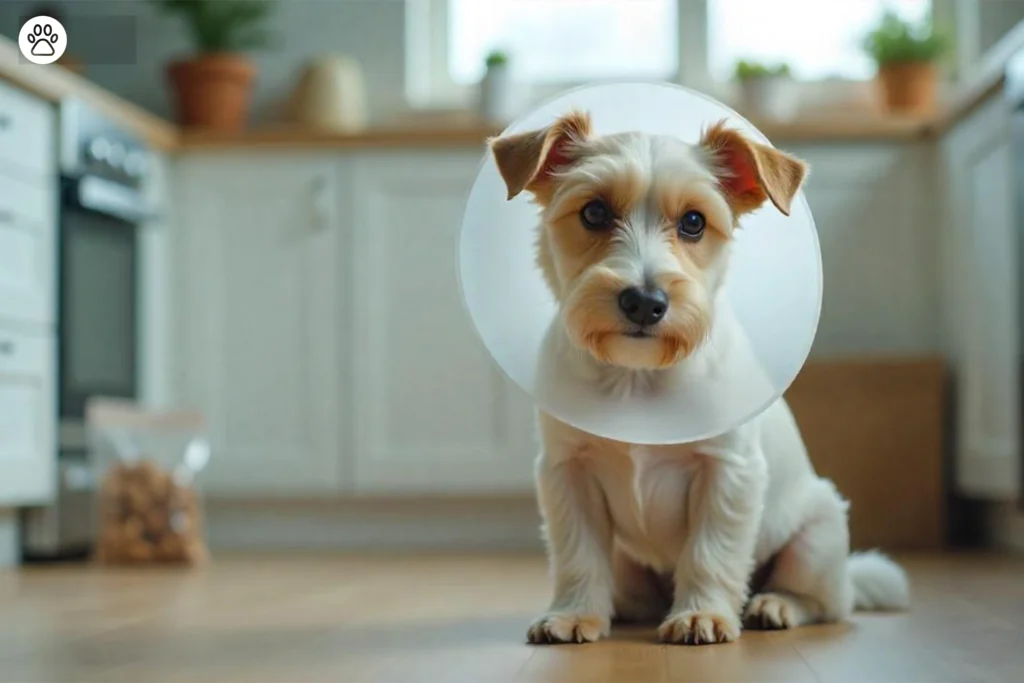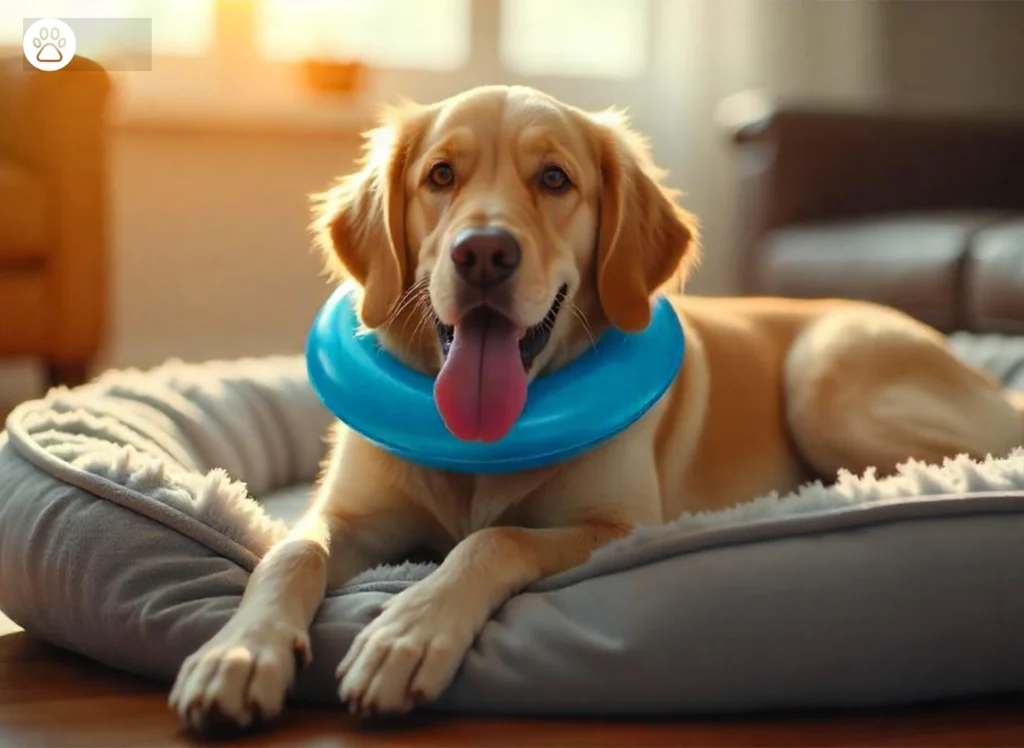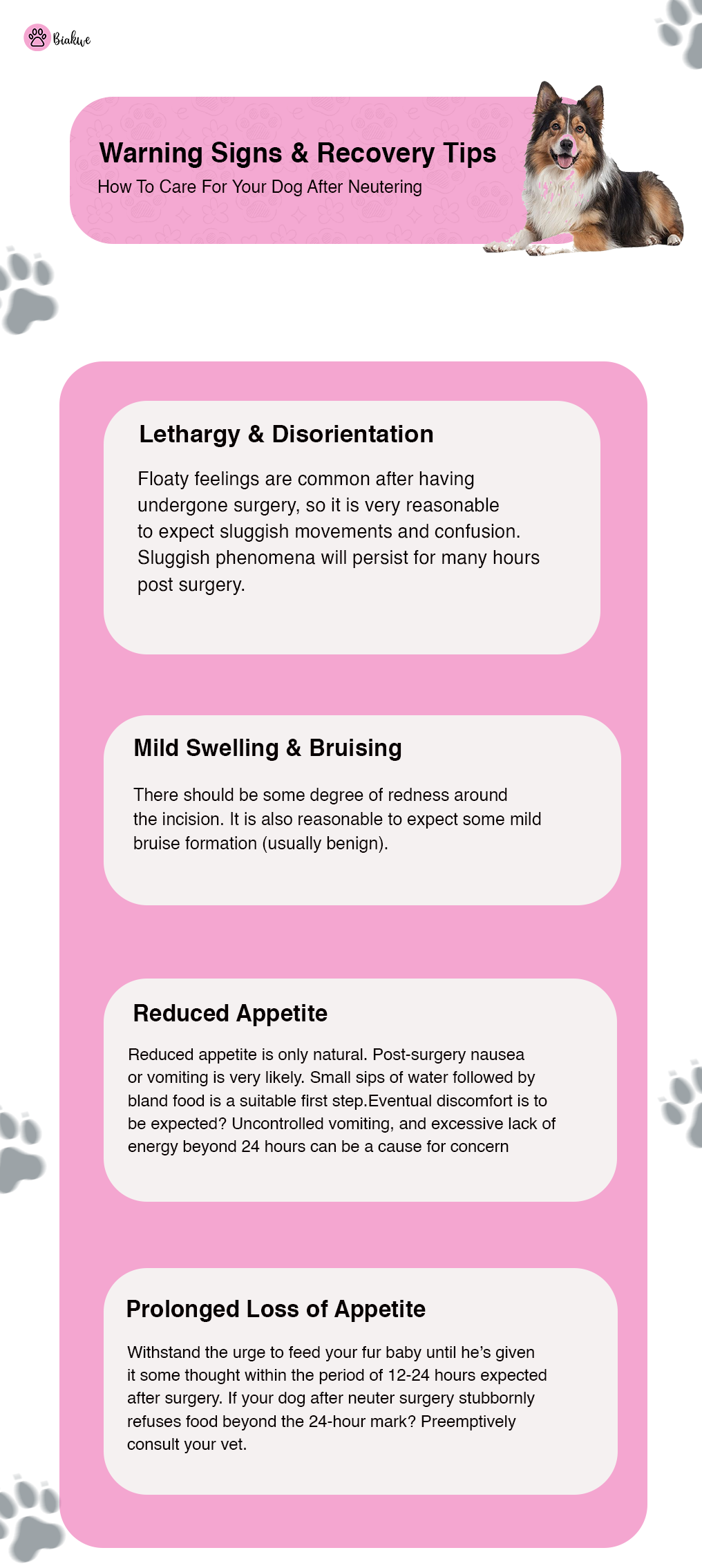While neutering is fairly ordinary, it comes with its own challenges in postoperative care. Your dog recently has undergone surgical procedures. He might behave normally, but his body goes through changes and needs a considerable amount of time to heal.
“The first 72 hours post-surgery are critical—monitor like a hawk.” — Dr. Lisa Freeman, DVM
Your dog requires special attention following neutering procedures, and with the right guidance, he can recover without any difficulties. This guide includes all the orthopedics of complications after neutering a dog and how to mitigate them, warning signs after neutering a dog that requires vet attention, and the ultimate best food for neutered dogs geared towards recovery as well as a complete postoperative care plan for dogs undergoing neutering. We will guide you through each step so that your pet can recover comfortably and safely.
Now let’s prepare your buddy to get going again!
What to Expect Immediately Following Surgery
Your dog will likely be lethargic due to the anesthesia. In the first 24 hours you can expect:
Discover: Red Tailed Hawk: Diet, Sounds and Facts to Know
Lethargy & Disorientation
Floaty feelings are common after having undergone surgery, so it is very reasonable to expect sluggish movements and confusion. Sluggish phenomena will persist for many hours post surgery.

Mild Swelling & Bruising
There should be some degree of redness around the incision. It is also reasonable to expect some mild bruise formation (usually benign).
Reduced Appetite
Reduced appetite is only natural. Post-surgery nausea or vomiting is very likely. Small sips of water followed by bland food is a suitable first step.
Eventual discomfort is to be expected? Uncontrolled vomiting, and excessive lack of energy beyond 24 hours can be a cause for concern.
Critical Warning Signs After Neutering Dog (Must-Know Complications)
Following a dog after neuter surgery, the vast majority of cases are routine, however, being alert to complications of dog neutering surgery could prove beneficial to your canine companion. During the dog recovery from neutering surgery, keep an eye on these:
Excessive Licking or Chewing at Incision Site
Lap Dogs licking after care procedures and chewing behaviors can lead to dangerous infections.
Solution: Employ the services of a cone collar or surgical pajamas in good time.

Increasing Swelling Around Surgical Area
Some mild swelling is fairly routine after neutered dog care, however, rapid enlargement might hint at a hematoma or indicate an infection.
Abnormal Discharge or Bleeding
A few splatters of blood in the first hours post surgery are acceptable, however, continuous bleeding and pus, yellow-green in color does need the attention of a vet urgently.
Prolonged Loss of Appetite
Withstand the urge to feed your fur baby until he’s given it some thought within the period of 12-24 hours expected after surgery. If your dog after neuter surgery stubbornly refuses food beyond the 24-hour mark? Preemptively consult your vet.
Trouble Breathing or Pale Gums
These are in fact warning signs after neutering a dog require instant evaluation. Consider this a dog neutering complications in an emergency.
Warning: The critical nature of your attention throughout dog recovery from neuter surgery cannot be stressed enough. For any doubts regarding complications of neutering a dog, do discuss your doubts with a veterinarian without delay. Providing proper neutered dog care guarantees safer healing and averts serious health dangers.
Explore: Betta Fish Care: Complete Guide to Types, Varieties & Tank Setup
Neutered Dog Care: The First Week Post Surgery
Restrict Activity (No Zoomies!)
- Walking only; no gallivanting or bouncing about for 10 days.
- Put a muzzle on if your pet is overly active.
Maintain Incision Hygiene
- No bathing is allowed for 10 – 14 days.
- Verify the incision site for any inflammation once every 12 hours.
Off-Obstruction to Licking Molded
- Fit with a plastic collar or physical overalls.
- Any licking poses a major threat of infection.
Pain Control
- Exercise prescribed treatment (without giving any form of analgesic belonging to humans).
- Stay alert to symptoms of pain, such as: whining or excessive movement.
Neutered Dog Nutrition and Post-Operative Diet Complications
Your dog’s nutritional needs will shift dramatically after surgery, with changes unique to feeding a dog recovery from a neutering surgery. This guide outlines what you need to know, especially the warning signs after neutering a dog related to diet.

First feeding Post Op (The Initial 24-48 hours)
There is a feeding protocol to note when the dog comes home after the neuter surgery:
- Phase 1: Ice chips or small amounts of water.
- Phase 2: Bland meals-ratio of boiled chicken to white rice is 1:3.
- Phase 3: Add 1 tsp of pumpkin puree for every 10 pounds of body weight.
Warning signs after feeding
- Vomiting more than twice
- Complete refusal of food beyond 24 hours
- Straining defecation, may require fiber
Long term feeding requirements
Different metabolism means reduction in overall caloric intake to 20% compared to the unspayed dogs. In addition to that increase in protein to 25% and reduction of fats to an ideal 12-15%.
Best recommended foods for neutered dogs
- Hill’s Science Diet Perfect Weight. Formulated for spayed or neutered dogs
- Royal Canin Neutered Adult, supports urinary health
- Purina Pro Plan Weight Management, contains live probiotics
Special considerations
- During early dog recovery from neutering, 3–4 smaller meals every day is required.
- Water should always be available.
- Focus on the weight every week (ideal increase being less than two percent of body weight per month).
Note that: Any warning signs after neutering a dog relating to appetite or any form of digestion lasting more than two days needs a vet appointment. During the complete and steady recovery process, proper nutrition makes all the difference in managing complications of dog neutering.
Restoring Overall Health After Surgery Is Achievable!
Although neutering is a surgery that poses no risk, proper care after dog neuter surgery dictates speed of recovery. Following care instructions will help watching for warning signs after neutering a dog, the best diet for neutered dogs, and restraining physical activities.
For more expert tips on neutered dog care, be sure to check out biakwe.com—your trusted resource for everything pet related.
